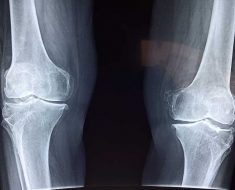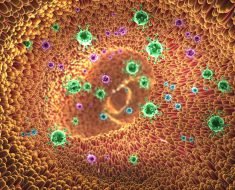A study looking at the personal perceptions and experiences of patients, families and healthcare professionals has highlighted the need for improvement in symptom management for end of life care.
The analysis by the Marie Curie Palliative Care Research Centre and the School of Healthcare Sciences at Cardiff University has identified several areas of treatment which were often perceived as sub-optimally managed by healthcare professionals, including; pain, breathing difficulties, nutrition, and hydration. Nutrition and hydration were specifically recognised as being “of significant concern”, particularly for carers.
Pain was identified as the area of symptom management most discussed by respondents with many bereaved carers sharing upsetting or traumatic experiences of their relatives uncontrolled pain. Several questioned the competence and confidence of healthcare professionals in effectively managing pain, while others highlighted reluctance to prescribe or administer adequate analgesia as a barrier to controlling their relative’s pain.
Based on their analysis, the researchers say there is a need for further research to test interventions in these areas, and ultimately, inform an evidence-based approach to clinical care. For example, the researchers point to carers’ concerns around under-recognised pain in patients who are unable to communicate verbally, such as those with dementia, noting that there is currently limited evidence around the validity of pain assessment tools.
Bereaved carers described distressing experiences around artificial nutrition and hydration. The researchers say this highlights the need for improved communication with patients and their carers around the dying process and its impact on eating and drinking. As well as anxiety around denial of food and fluids, some carers described instances where there was pressure from healthcare professionals to administer artificial nutrition despite it being against the patient’s wishes.
Several of the healthcare professionals felt that further research was required to determine the nutritional needs of people towards the end of their lives and that a stronger evidence base was needed around if and when artificial nutrition should be administered. Guidelines outlining hydration and nutrition at end of life have subsequently been developed by the Royal College of Nursing in 2015, and by General Medical Council in 2010, but their impact on practice is currently unknown.
Annmarie Nelson, Professor of Supportive and Palliative Care and Scientific Director at the Marie Curie Palliative Care Research Centre said:
“Despite the advances we are seeing in the field of palliative care, symptoms such as pain and breathlessness remain at the forefront of people’s concerns. What this analysis shows is that there are significant concerns around uncontrolled symptoms among patients and carers but also among healthcare professionals who feel that there should be clearer guidance, particularly with regards to nutrition and hydration.”
Dr. Jessica Baillie, Lecturer in Adult Nursing and RCBC Wales Postdoctoral Research Fellow at the School of Healthcare Sciences at Cardiff University added:
Source: Read Full Article





